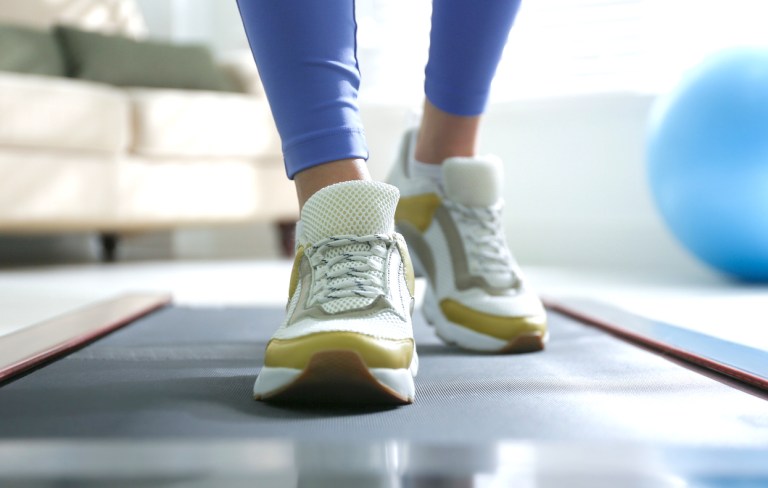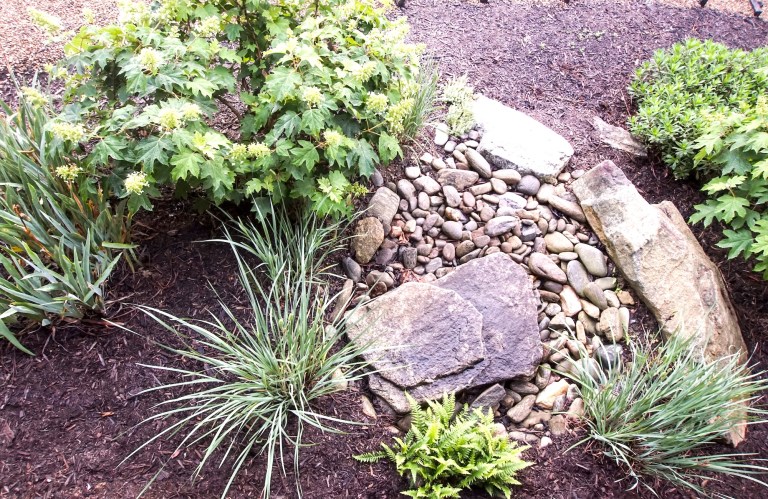Fifteen minutes may not seem like a lot of time, but when used intentionally, it can go a long way. Insert: a feel-good dance party, relaxing power nap, soul-filling chat with a friend, heart-boosting stroll — the list goes on and on.
What’s wonderful about these aforementioned activities is you get a slew of benefits in a short amount of time. From improving your mood and ability to concentrate to benefiting your well-being and even potentially adding years to your life, these 15-minute activities can help you live a healthier, happier life.
So next time you have a short break in between meetings, or at the start or end of your day, here are 15 ways to give your present self a quick pick-me-up — your future self will thank you for it!
1. Take a Walk
So much more than a way to get from point A to B, walking is a mood-lifter, energy booster, and heart-strengthener. Even if you’re short on time, a 2018 study found that 10-minute walks improved the mood of participants, and another study showed that going for leisurely walks helped reduce risk of death from cardiovascular disease, cancer, or any cause.
Looking to connect more with nature during your walks? Consider the Japanese art of shinrin-yoku (forest bathing), which Time describes as “simply being in nature, connecting with it through our senses of sight, hearing, taste, smell, and touch.” It’s an effective and enjoyable way to disconnect from technology, slow down, and feel grounded to the present moment.
To get started: Put on your comfiest walking shoes, hit the streets, and “let your body be your guide.”
2. Stretch It Out
Yoga is linked to myriad benefits, from increased flexibility and muscle strength to improved energy and vitality. Stretching can also decrease risk of injuries, which will help you maintain a fitness practice in the long-term, while avoiding pain.
Not sure where to start? We compiled a roundup of free online yoga classes, including chair yoga and gentle yoga. Or be your own teacher and practice intuitive movement, which is essentially moving in a way that feels good.
To get started: Try this “Beginner Morning Yoga Flow With Mary Ochsner.”
3. Practice Problem-Solving With a Crossword Puzzle

According to Harvard Health Publishing, “memory and thinking skills may improve with regular crossword practice.”
Crosswords may also help slow down cognitive decline. A study published in NEJM Evidence found that attempting a crossword regularly could help people with mild cognitive impairment slow down their decline.
Not to mention, the joy of figuring out a crossword puzzle answer is something only fellow crossword enthusiasts will understand. But it’s a special kind of satisfaction!
To get started: Sign up to receive a new puzzle in your inbox every day from Crossword Club, Nice News’ sister brand!
4. Meditate
For most of us, our lives are filled with to-do lists, plans for tomorrow, and thoughts about yesterday. It’s not always easy to focus on the present moment, but it’s well worth the dedication and patience.
Harvard Health explains that spending 10-15 minutes meditating on a consistent basis is a way to experience more mindfulness. Whether you feel most motivated to meditate in the morning, middle of the day, or at night, dedicating 15 minutes to conscious breathing or doing a body scan can help reduce stress, improve sleep, and enhance self-awareness.
To get started: To ease into a practice, consider downloading a meditation app, such as Headspace or Calm. This 10-minute “Reset: Decompress Your Body and Mind” video from Headspace is also a great place to start.
RELATED: One-Minute Bursts of Exercise Three Times a Day Are Linked to a Longer Life, Study Finds
5. Sweat With a HIIT Workout
Want to break a sweat stat? HIIT workouts (high intensity interval training) are shown to be multi-taskers when it comes to health benefits: The short bursts of intense exercises burn a lot of calories quickly, improve oxygen consumption, and keep your metabolic rate higher for hours after the workout.
In addition, they usually don’t require much, or any, workout equipment, so you can do them at home, in an office, or at the park.
To get started: Move your body with this 15-minute, no-impact HIIT workout (no equipment required).
6. Connect With Nature by Gardening

Like walking, gardening is a low-intensity exercise packed with benefits: It’s associated with improved mobility and endurance, along with a decreased risk of death from cancer or cardiovascular disease.
Beyond physical benefits, gardening is also a wonderful way to connect with nature, which is shown to reduce stress, lift spirits, and sharpen our cognition.
To get started: Even if you don’t have a backyard, you can still embrace gardening with an indoor garden kit or by growing herbs. And check out our roundup of 16 must-have gardening products!
7. Do Something That Makes You Laugh
Laughter is not only contagious, it’s good for you! According to WebMD, laughing for 15 minutes burns about 50 calories and stretches your muscles. A nice chuckle is also linked to long-term benefits, like improving your immune system, relieving pain, and increasing personal satisfaction.
Getting a laugh in at night can be especially beneficial, as there is an association between laughter in the evening and better sleep quality because it increases the body’s production of melatonin.
To get started: Watch a few short funny videos, turn on your favorite sitcom, or call someone who always seems to make you giggle. If it makes you laugh, it’s the right choice for you.
RELATED: So Bad They’re Good: Embarrassing “Dad Jokes” May Help Children’s Development, Study Says
8. Go for a Bike Ride
Cycling boosts mental health and brain power, along with endurance, strength, and circulation. Plus, whether you’re commuting or going for a leisurely ride, biking is generally more environmentally-friendly and cost-effective than driving. A win-win!
To get started: Put on your helmet and start turning those wheels around your neighborhood, or take advantage of exercise bikes at the gym (you can pair these workouts with 15-minute virtual rides that make you feel like you’re outdoors).
9. Doodle

Doodling isn’t only for kiddos. According to research, doodling can decrease stress, boost creativity, and help improve our concentration. Harvard Health Publishing also explains that doodling can “activate your brain’s ‘unfocus’ circuits, give your ‘focus’ circuits a break, and allow you to more creatively and tirelessly solve a problem at hand.”
To get started: Grab any scratch piece of paper and pen, and doodle your heart out. Remember, it doesn’t matter how it looks; simply the act of doodling is what matters. If you’re in need of some inspiration, meet Mr. Doodle: the artist who covered his entire house in doodles.
10. Read Something You Enjoy
Reading comes with a slew of benefits, such as keeping our brains sharp and helping us relax. We’re big proponents of reading fiction, since it’s shown to increase empathy. Research also shows that picking books you want to read fosters lifelong readers. So, we’d encourage you to read whatever you love — whether it’s a memoir, magazine, or novel.
To get started: Take a look at some of our favorite picks from Nice News’ recommended reading list.
11. Do a Little Bird Watching
Fun fact: Studies show that just listening to birdsong helps with stress recovery and attention restoration. Birdwatching is also linked to reducing anxiety, lessening feelings of paranoia, and improving mental well-being. Plus, you may be surprisingly entertained by the quirky habits of the birds around you!
To get started: Look out a window and notice the sights and sounds of the birds, trees, and wildlife in your presence.
12. Journal
Expressing your thoughts and reflecting in a safe space via journaling is shown to reduce stress, deepen self-discovery, and improve your mood. Even with only 15 minutes, you can improve both your physical and mental health, according to CNBC.
Psychology Today also recommends gratitude journaling as a way to increase well-being. Gratitude journaling can look like writing yourself a “thank you” letter, jotting down a few people you’re grateful for, or writing down a list of things, big and small, that make you feel a sense of appreciation.
To get started: If you’re new to journaling, consider starting with a guided journal like The Five-Minute Journal or Create Your Own Calm. However, all you need is a blank page and a pen to start a journal practice.
13. Dance Like No One’s Watching
Dancing is part of countless celebrations for a reason: It makes us feel good! Connecting with others through movement is a way to bond and feel closer together in social settings while also boosting self-confidence, particularly in young adults.
On top of improving our psychological well-being, dancing can improve our cardiovascular health, flexibility, and core strength.
To get started: Dance to a few songs that speak to you — or try this 15-minute happy dance workout.
14. Call a Friend

We all probably text a lot more than we call nowadays. However, hearing the sound of a loved one’s voice, even for only a few minutes, is shown to reduce depression and loneliness. If you’re worried about reaching out to someone you haven’t spoken to in a long time, research shows it’s actually a wonderful way to boost your mental health — and also theirs!
To get started: Pick up the phone and call someone you care about. Or consider leaving a voice note for them and planning a time to chat.
15. Take a Nap
Last but not least, a short snooze is an effective way to give yourself a pick-me-up. The Centers for Disease Control and Prevention explains 15-30 minutes is the optimal time for a nap to increase alertness. Plus, short naps are associated with improved focus, concentration, and reaction time.
To get started: Go somewhere comfy, rest your eyes, and don’t forget to set an alarm so 15 minutes doesn’t turn into 50.












